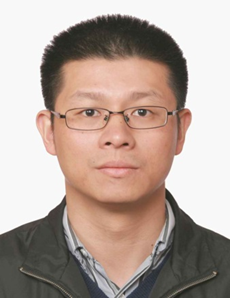Research on Thermoelectric
Materials based on Materials Genome Initiative
Xun
Shi*, Lidong Chen, Tianran Wei
Shanghai
Institute of Ceramics, CAS
ABSTRACT: The development of novel high-performance thermoelectric
materials, high efficiency thermoelectric devices and their applications is
very important for more efficient use of energy. Different from traditional
trial and error method, the Materials Genome Initiative provides a rational and
high-throughput method for thermoelectric materials by combining theoretical
calculations, experiment and large database. The research on thermoelectric
materials based on Materials Genome Initiative can greatly reduce the time and
cost. In the past two years, we have achieved a great progress for the
development of thermoelectric materials by using Materials Genome Initiative.
We have developed high-throughput calculation methods and software to achieve
both high calculation speed and accuracy, high-throughput materials synthesis
method and measurement techniques, high-throughput screen of novel
thermoelectric materials, construction of relationship of the Genome map for
thermoelectric properties, optimization of thermoelectric performance, and high
efficiency thermoelectric devices and demo system. In this talk, we will
briefly introduce the research on Thermoelectric Materials based on Materials
Genome Initiative in China. Then we will particularly present our great
progress in high-throughput calculations, high-throughput material synthesis,
and performance optimization for thermoelectric materials.
Keywords: thermoelectric
materials; Materials Genome Initiative; high-throughput calculations;
performance optimization
* Corresponding author:
Email address.

Xun Shi is a Professor in Shanghai Institute of Ceramics, Chinese Academy of Sciences (SICCAS), China. He received his B.S. (2000) in Tsinghua University and Ph.D. (2005) in the University of Chinese Academy of Sciences. He worked University of Michigan (USA) as a postdoctor from 2007 to 2009. Then he joined the R&D center in General Motors. At 2010, he came back SICCAS. His current research focuses on advanced thermoelectric materials and plastic semiconductors. He has over 210 peer-reviewed publications and 50 granted or submitted patents. His recent awards include National Science Fund for Distinguished Young Scholars (2016), Young Investigator Award of Chinese Academy of Sciences (2016), National Science Fund of China for Excellent Young Scholars (2012), and Young Investigator Award, International Thermoelectric Society (2010).